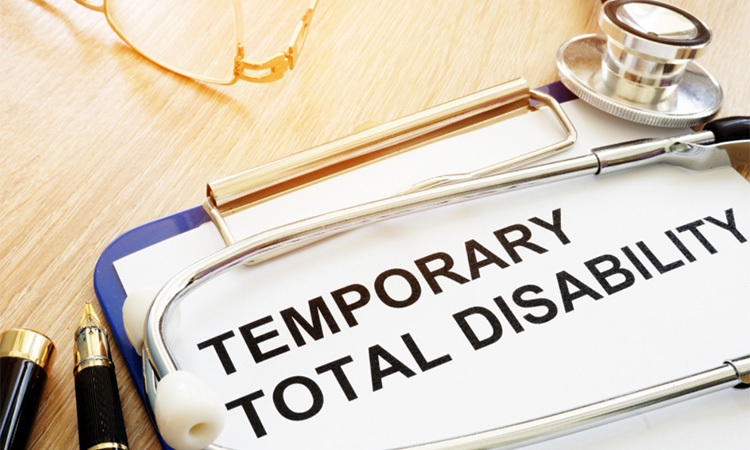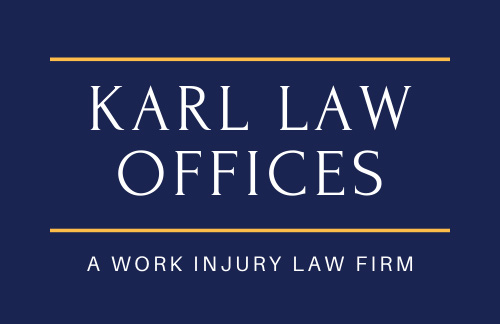Dealing With Your Employer's Insurance Company
Even if your claim is accepted and benefits were paid initially, the insurance company always has the right to dispute the nature and extent of the injury. The strongest tool available to the insurance company to defend against your claim is to exercise their right to send you to an independent medical exam with a doctor of their choosing. This doctor will perform a brief physical exam but also an extensive review of the available medical records and issue a report in response to questions posed to him by the insurance company or insurance defense attorney regarding work relatedness of the injury, need for restrictions, and reasonableness and necessity of treatment that you’ve already had for the injury, as well as that of any treatment recommended for the injury by your treating physician(s).
The doctors who perform these independent medical exams for insurance companies get paid well for the exam and report, have performed many of them before yours, and would like to perform many more in the future. You would be right to expect they will be biased in favor of the insurance company, but every so often if the examiner thinks your claims are valid and you are credible/likable, they will write a report that is partially or even sometimes completely supportive of your claimed injury. Therefore I recommend that when you attend that exam that you treat that doctor with respect and that you don’t give him any reason to dislike you personally. I think it’s best to just be yourself and don’t exaggerate your symptoms.
Temporary Total Disability And Maximum Medical Improvement

No matter whether your claim was accepted, denied, or accepted initially and then disputed later, there are limits on your ability to claim payment of temporary total disability benefits. TTD benefits can be claimed for a maximum of 130 weeks. However, if at any time you are found to be at maximum medical improvement or MMI (The point at which no further significant recovery is reasonably expected to occur), you are only able to make a claim for temporary total disability benefits for 90 days beyond the date you were found to be at MMI. Therefore, it is very common that your own treating physician may place you at MMI at a time well before 130 weeks have passed, even if he is of the opinion that you are still quite injured and in need of permanent restrictions.
Commonly, the report from the independent medical examiner will contain an opinion that you have reached maximum medical improvement quite some time ago, often at a date much sooner than your treating physician places you at MMI (assuming he has done so). At the time your doctor places you at maximum medical improvement, he may also assign you permanent restrictions if he feels that they are appropriate. He may send you for a functional capacity evaluation or FCE to help him determine what permanent restrictions would be appropriate, but not always and he is free to assign permanent restrictions without the aid of that evaluation.
The PPD Rating
Also whether he sends you for an FCE or not; this would be the time when he would give you a permanent partial disability (PPD) rating under the Worker’s Compensation law. The percentage rating he gives you is based on a section of the law corresponding primarily to degree of lost function of the affected body part. That percentage rating Corresponds to a dollar figure to a dollar figure owed to the employee. It’s usually less than $10,000, really only exceeding that range for quite severe permanent injuries.
A dispute as to the date you have reached MMI often creates an issue as to your ability to claim ongoing temporary total disability payments. If your claim is accepted and the insurance company is seeking to discontinue your TTD payments based on their IME report, the insurance company can stop payment and at the same time send out a form called a notice of intent to discontinue or NOID. Your lawyer can and most likely will request a preliminary hearing on that issue which will allow you to go in front of a judge and argue that the insurance company does not have a reasonable basis upon which to discontinue your benefits. This is known as a 239 conference.
What Is A 239 Conference?

A 239 conference is an informal court proceeding heard by a different judge than the one assigned to hear formal hearings on your case. Given that the insurance company only needs a “reasonable basis” upon which to be permitted to discontinue your benefits between the date of the notice of intent to discontinue and any formal hearing on the issue of wage loss, many judges will be inclined to allow the insurance company to stop paying if the discontinuance is based on the report from their independent medical examiner.
If the judge finds that they do have a reasonable basis, we will most likely ask for a formal hearing which will take place in about 60 days and the entire period of wage loss you incurred by the time we get to that hearing will be decided anew. However, if the judge finds at the 239 conference that the insurer does not have a reasonable basis, the insurer will have to re-commence payment of wage loss. Then the insurer will request a similar formal hearing, again to take place in about 60 days, at which they will argue that they should not have owed the wage loss they’ve been paying.
Claiming Permanent Total Disability

Sometimes even though someone has exhausted their ability to claim temporary total disability benefits, they may be injured permanently to such a degree that they are unable to return to work. Based on age, there are progressive threshold’s of PPD percentage ratings that must be reached, however, assuming the threshold is met, it may be appropriate to make a claim for permanent total disability benefits which is essentially wage loss through age 70. Under the law, The injured worker would need to prove that they are unable to return to suitable gainful employment despite exhaustive efforts to find work. Not an easy thing to do.
Nevertheless there are certainly instances where due to a persons age, skill set, job market in their geographical area, and of course the permanent restrictions from their work injury, that it is hard to imagine what kind of work they could return to or who might consider hiring them. If someone looks to be a fitting candidate for being deemed permanently totally disabled it represents significant value on the claim.
Other Sources Of Compensation

Regarding other sources of benefits: often times people are injured at work and then have a dispute with the insurance company regarding payment of wage loss and medical benefits. If wage loss benefits are not being paid, it’s usually fine to seek out and collect other forms of similar benefits in the meantime. For example it’s completely appropriate to claim unemployment if you are out of work (as long as you are not completely restricted from all work by your doctor). Again, you don’t want to claim unemployment for any period in which you are also receiving wage loss benefits from the Worker’s Compensation. Similarly, if there is a short term or long term disability policy available, it’s acceptable to collect those benefits if you were out of work but ensure Worker’s Compensation is not paying wage loss currently.
One thing that I do recommend is to consult with a Worker’s Compensation attorney prior to applying for Social Security while your Worker’s Compensation claim is pending. It’s important to know the ramifications of applying for Social Security disability benefits prior to doing so and there are definite situations where you may decide that you do not want to apply for SSDI.
